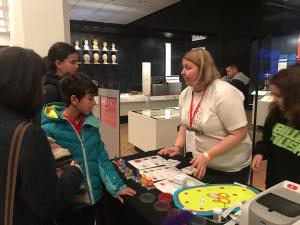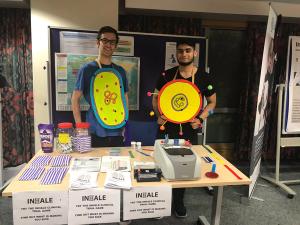INHALE PDG

INHALE: Potential of Molecular Diagnostics for Hospital-Acquired and Ventilator-Associated Pneumonia in UK Critical Care
Scientific title:
The Impact of using FilmArray Pneumonia Panel Molecular Diagnostics for Hospital-Acquired and Ventilator-Associated Pneumonia on Antimicrobial Stewardship and Patient Outcomes in UK Critical Care: A Multicentre Randomised Controlled Trial.
Chief Investigator:
Dr Vicky (Virve) Enne and Dr Vanya Gant
Funder:
This research funded by the National Institute for Health Research (NIHR) under its Programme Grants for Applied Research Programme (Reference Number RP-PG-0514-20018).
The views expressed are those of the Inhale Team and not necessarily those of the NHS, the NIHR or the Department of Health.
Study design:
This interventional trial is an open-label, parallel, randomised controlled trial exploring the potential of FilmArray molecular diagnostics versus standard care.
Background:
Antibiotic resistance is a global threat, with infections becoming more difficult to treat as resistance increases. Unnecessary and incorrect usage of antibiotics is driving the increase in resistance, leading to increased illness and excess deaths. New ways to encourage correct and appropriate use of antibiotics are needed, known as antibiotic stewardship, without compromising patient care.
Hospital-acquired pneumonia (HAP) and ventilator-associated pneumonia (VAP) are serious and life-threatening conditions caused by a variety of sources, including bacteria, viruses and fungi, which require correct treatment.
The INHALE research programme was funded by The National Institute for Health Research (NIHR) (Ref. RP-PG-0514-20018) to investigate the use of ‘rapid molecular diagnostics’ to diagnose HAP and VAP in intensive care units (ICUs), to potentially allow the correct treatment for the infection to be prescribed faster, rather than a ‘best guess’ antibiotic which may be unsuitable.
In the clinical trial, a molecular diagnostics test (FilmArrayPneumonia Panel) was used alongside optional treatment guidelines developed for the study, to investigate how this would influence antibiotic stewardship. This showed that the test worked as expected to identify the infection in patients’ samples and helped to ensure antibiotics were described appropriately in the rapid diagnostics group, however, unexpectedly cure rate was not shown to be equal across the intervention and control groups. Additionally, the use of treatment guidelines was affected by the clinicians’ thoughts and beliefs
INHALE-PDG looks to take a more detailed look at the existing data, in the hope of understanding the results better, particularly explaining the unexpected cure results and pinpointing the reasons for clinicians not wanting to use and follow the treatment algorithm. Understanding and addressing their concerns may help to improve treatment outcomes in the future.
A deeper understanding of the INHALE results will also allow for the design of another large study to ensure that rapid tests can be used with the right guidance to quickly diagnose and appropriately treat pneumonia patients in ICUs.
For Original INHALE trial, please click here






